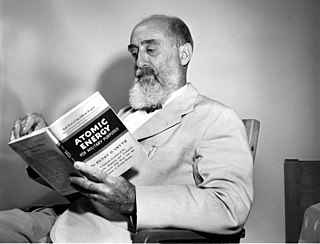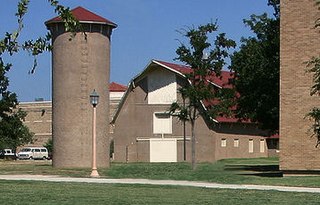Related Research Articles

Reading education in the United States teaches American students to derive and understand literary patterns. Students that lack proficiency in reading after third grade may face obstacles for the rest of their academic career unless they are able to get extra assistance, such as remedial education. Fourth-graders encounter a broad range of literary topics, making the third grade a crucial checkpoint for American students.
A didactic method is a teaching method that follows a consistent scientific approach or educational style to present information to students. The didactic method of instruction is often contrasted with dialectics and the Socratic method; the term can also be used to refer to a specific didactic method, as for instance constructivist didactics.
Teach For America (TFA) is a nonprofit organization whose stated mission is to "enlist, develop, and mobilize as many as possible of our nation's most promising future leaders to grow and strengthen the movement for educational equity and excellence."

Music education is a field of practice, in which educators are trained for careers as elementary or secondary music teachers, school or music conservatory ensemble directors. As well, music education is a research area in which scholars do original research on ways of teaching and learning music. Music education scholars publish their findings in peer-reviewed journals, and teach undergraduate and graduate education students at university education or music schools, who are training to become music teachers.

Agricultural Education is the teaching of agriculture, natural resources, and land management. At higher levels, agricultural education is primarily undertaken to prepare students for employment in the agricultural sector. Classes taught in an agricultural education curriculum may include horticulture, land management, turf grass management, agricultural science, small animal care, machine and shop classes, health and nutrition, livestock management, and biology.
Culturally relevant teaching or responsive teaching is a pedagogy grounded in teachers' displaying cultural competence: skill at teaching in a cross-cultural or multicultural setting. Teachers using this method encourage each student to relate course content to his or her cultural context.

Teacher education TE (TE) or teacher training refers to the policies, procedures, and provision designed to equip (prospective) teachers with the knowledge, attitudes, behaviors, and skills they require to perform their tasks effectively in the classroom, school, and wider community. The professionals who engage in training the prospective teachers are called teacher educators.
In the context of education, one-to-one computing refers to academic institutions, such as schools or colleges, that allow each enrolled student to use an electronic device in order to access the Internet, digital course materials, and digital textbooks. The concept has been actively explored and sporadically implemented since the late 1990s. One-to-one computing used to be contrasted with a policy of "bring your own device" (BYOD), which encourages or requires students to use their own laptops, smartphones or other electronic devices in class. The distinction between BYOD and school-issued devices became blurred when many schools started recommending devices for parents to buy. The term 1:1 computing in education is now redefined to a situation where students have access to a device per individual that is used in the teaching as a tool for learning. Historically, the programs have centered around the following devices:
Pratham is one of the largest non-governmental organisations in India. It was co-founded by Madhav Chavan and Farida Lambay. It works towards the provision of quality education to the underprivileged children in India. Established in Mumbai in 1994 to provide pre-school education to children in slums, Pratham today has interventions spread across 23 states and union territories of India and has supporting chapters in the United States, UK, Germany, Sweden, and Australia.
The Classmate PC, formerly known as Eduwise, is Intel's entry into the market for low-cost personal computers for children in the developing world. It is in some respects similar to the One Laptop Per Child (OLPC) trade association's Children's Machine (XO), which has a similar target market. Although made for profit, the production of the Classmate PC is considered an Information and Communication Technologies for Development project. The device falls into the then popular category of netbooks.
The School of Education and Social Policy (SESP), established in 1926, is the smallest of the eight undergraduate and graduate institutions at Northwestern University, USA. Located about 12 miles north of downtown Chicago in Evanston, Illinois, SESP is devoted to the academic study of education and is consistently ranked among the top schools of education in the US.

A certified teacher is an educator who has earned credentials from an authoritative source, such as the government, a higher education institution or a private body or source. This teacher qualification gives a teacher authorization to teach and grade in pre-schools, primary or secondary education in countries, schools, content areas or curricula where authorization is required. While many authorizing entities require student teaching experience before earning teacher certification, routes vary from country to country.
Multicultural education is a set of educational strategies developed to assist teachers when responding to the many issues created by the rapidly changing demographics of their students. It provides students with knowledge about the histories, cultures, and contributions of diverse groups; it assumes that the future society is pluralistic. It draws on insights from a number of different fields, including ethnic studies and women studies, and reinterprets content from related academic disciplines. It is also viewed as a way of teaching that promotes the principles of inclusion, diversity, democracy, skill acquisition, inquiry, critical thought, value of perspectives, and self-reflection. This method of teaching is found to be effective in promoting educational achievements among immigrants students and is thus attributed to the reform movement behind the transformation of schools.

Piano pedagogy is the study of the teaching of piano playing. Whereas the professional field of music education pertains to the teaching of music in school classrooms or group settings, piano pedagogy focuses on the teaching of musical skills to individual piano students. This is often done via private or semiprivate instructions, commonly referred to as piano lessons. The practitioners of piano pedagogy are called piano pedagogues, or simply, piano teachers.

The Notre Dame Institute of Education (NDIE) is a teacher education facility in Saddar Town in Karachi, Sindh, Pakistan.
Gongju National University of Education(GNUE) is a national university located in Gongju, South Korea. The university is for individuals who want to teach at elementary schools in Daejeon city and South Chungcheongnam province. The university was founded April 1938 under the name Gongju Women Instructor's school. In 1962, The University began specializing in elementary school teacher training that offered two years’ program and was renamed to Gongju University of Education. As of 1982, the system changed to four years’ course from two years’ course. In 1993, the university modified the name to Gongju National University of Education. Since the established year, 1938, over 25,000 graduates became elementary teachers.

Teaching for Change is a non-profit organization founded in 1989 and based in Washington D.C. with the motto of "building social justice, starting in the classroom." This organization uses publications, professional development, and parent organizing programs to accomplish this goal.

John Arthur Rassias was an American professor who developed a method for the teaching of foreign languages, the Rassias Method, also known as the Dartmouth Intensive Language Model. John Rassias founded the Rassias Center for World Languages and Cultures, a department of Dartmouth College situated in the Office of the Provost that works with language learners and professionals from around the world.
Educator effectiveness is a K-12 school system education policy initiative that measures the quality of an educator performance in terms of improving student learning. It describes a variety of methods, such as observations, student assessments, student work samples and examples of teacher work, that education leaders use to determine the effectiveness of a K-12 educator.
CLT India is an Indian non-profit, non-government organisation based in Jakkur, Bengaluru. It was founded in 1997 by Bhagya Rangarchar. It aims to provide education using technology to the under-served communities and its solutions serve the base of the pyramid.
References
- ↑ Curtis Silver. Intel Teach: 15 Million Teachers Influencing 300 Million Students http://www.intel.com/content/www/us/en/education/k12/intel-teach-ww.html?wapkw=12+million+teachers
- ↑ Noman Ahmed. Teaching methods: From PCs to education, Intel helps change lives. The Express Tribune Pakistan. http://tribune.com.pk/story/307773/teaching-methods-from-pcs-to-education-intel-helps-change-lives/
- Intel Teach at the Intel website: http://www.intel.com/about/corporateresponsibility/education/programs/intelteach_ww/index.htm
| This computing article is a stub. You can help Wikipedia by expanding it. |